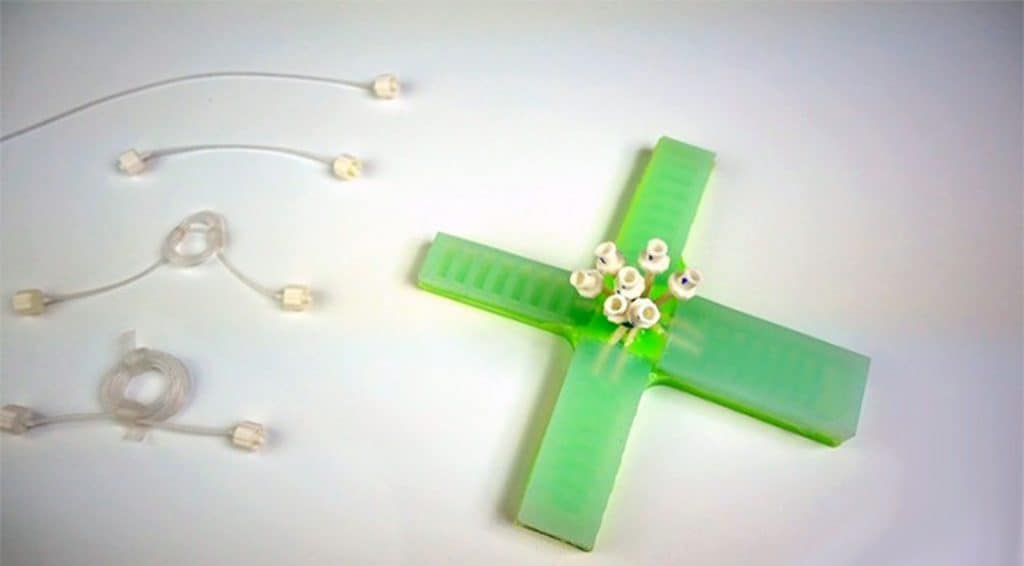
You wouldn’t need complex machinery or wires.
Soft robots promise a kinder, gentler approach to automation, but they’re frequently hamstrung by complexity, costs and the need for wires. Thankfully, Harvard researchers have found a way to simplify matters. They’ve developed a softrobot driven by pressurized air that doesn’t need the multiple control systems that frequently guide these machines. A lone input pumps air to the robot’s legs through tubes of different sizes, which determines how those legs behave. If you want the robot to crawl forward, you just have to send air through the right set of tubes.
The test bot is just a simple cross-shaped quadruped, and it currently needs an external source of air. You’re not about to see one in the wild any time soon. However, the simplicity and reduced parts could make it practical for all kinds of tasks where soft robots were either impractical or had to be tethered, such as space exploration or search and rescue. They could scramble across rough terrain without as much caution as more fragile conventional robots, and could be more affordable — important if anything does go wrong.


